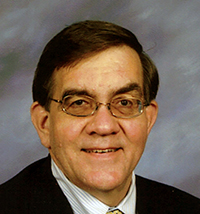

by Steve Wolfgang
Synopsis: The theme section of the January issue of Truth Magazine offers several reviews and personal reflections on the 2017 Exploring Current Issues Conference (ECIC). This is a private Bible study hosted by Jim Deason that has been conducted in Cullman, AL since 2011. This year's study focused upon the similarities and differences between institutional and non-institutional churches of Christ.
The Exploring Current Issues Conference is an annual gathering for the purpose of… Exploring Current Issues of interest among Bible students. Organized by Jim Deason and meeting in a comfortable events center (Stonebridge Farms in Cullman, AL), the ECIC has convened in recent years to discuss controversial subjects. In 2012, the manuscripts produced by the speakers—Paul Earnhart, Bill Hall, Dan King, L.A. Stauffer, Carroll Sutton, and Steve Wolfgang—were published as The Simple Pattern, dealing with issues arising from the controversy over church support of orphanages, colleges, and other human institutions, as well as "sponsoring church" activities in various radio/TV enterprises, evangelistic organizations, etc. Manuscripts, PowerPoint, and recordings from various ECIC gatherings are available at eciconference.com, and the book is available from Truth Publications/CEI Books.
In 2016, brother Greg Tidwell, editor of the Gospel Advocate, and its new owner, brother Randy Duke, invited several brothers commonly labeled in various directories as "NI" ("Non-Institutional"), to the Advocate offices in Nashville to discuss issues which had divided brethren since at least the 1950s. That meeting included Mark Mayberry, Dan King, Jim Deason, myself, and several others. Brother Tidwell also invited Clyde Woods and others from Freed-Hardeman University, Roy Johnson of the "Lads to Leaders" program, and others who also participated in this year's ECIC. I applaud Greg and Randy for this initiative and hope these discussions continue.
Speakers at this year's ECIC included Greg Tidwell, Doug Burleson (Lectureship Director at Freed-Hardeman University), Randy Duke, Glenn Ramsey, and several younger preachers well-known among institutional brethren, including Donnie DeBord, Chad Ramsey, and Matthew Morine. Speakers presenting opposing viewpoints included Doy Moyer, Kyle Pope, Buddy Payne, Donnie Rader, Allen Dvorak, David Diestelkamp, and myself, discussing Biblical Authority, Church Cooperation and Support of Institutions, the Scope of Church Benevolence, the Church and Social Activities, and fellowship issues. After opposing presenters spoke for an hour each, a Question/Answer session concluded each segment of the discussion.
I have been asked to offer some reflections on this gathering. I much appreciate being invited to participate, and the seeming "thaw" in previously-frosty relationships with brethren who have increasingly grown apart from each other. While I will attempt not to be deliberately offensive, these are my honest reflections, and I realize some will not agree with my assessments and observations.
First, institutional ("I" for shorthand) Churches of Christ seem to be in far greater disarray, maybe even chaos, than I knew—at least, according to some who attended and spoke at this conference. Issues mentioned as examples of this turmoil include the increasing adoption of instrumental music, women preachers, and a more open position of accepting those who practice homosexuality. Many also accept as members individuals who have substituted the denominational practice of sprinkling or pouring for immersion. By one estimate, approval of such tendencies affects 30% of the institutional churches which includes 50% of their overall membership. One result of this is another estimate that non-institutional churches now constitute nearly a fourth (23%) of all "churches of Christ."
In several local areas with which I have some familiarity, I have encountered this sense of turmoil with, for example, increasing turnover of members leaving institutional congregations which have drifted in directions which make them uncomfortable, removing statements about baptism from their websites, and engaged in several other practices similar to those mentioned above. With increasing frequency, some of these disenchanted members migrate to "NI" churches and often express appreciation for the Bible-based appeal of the preaching and activities they encounter there.
Second, one of the questions which has occurred to me in preparation for gatherings such as this is: will I hear anything "new"—particularly any new Biblical evidence for various institutional practices? In this case: not really. I heard that fellowship halls are "justified" by the foyer (which seems to have replaced the water fountain as all the authority necessary—so long as the activities do not extend to too much entertainment or become family-life or community centers). This common "three-stage rocket" approach, as Robert Turner once described it (that traditional practice justifies this new one, and the new practice will "authorize" yet another, with no Biblical authority needed), is regularly used instead of any appeal to Scripture.
Third, a concern I have had at such events—including similar meetings I organized in Nashville in 1988 and Dallas in 1990—pertains to the reaction of young preachers who often have never considered these "issues" and sometimes wonder: is this exaggerated? Was it just a bunch of old preachers inventing just another "preacher fight"? Have "antis" misrepresented promoters of church-supported human institutions? Allowing young men to hear for themselves directly from defenders of such institutions is a valuable endeavor.
Fourth, the discussion at this gathering renewed the contention that Philippians 4 and Acts 18 demonstrate that Philippi functioned as a "sponsoring church" for the transmission of financial support to Paul. While I appreciate the attempted appeal to Scripture for authority (it certainly beats past "arguments" like "the only 'anti' church in the Bible was Anti-och"), it is at best a misguided attempt which misuses Scripture by conflating two events, as can easily be seen even in the identification of different "messengers." Epaphroditus is specifically named in Philippians 4:15-18 as the bearer of "the gifts" (ESV) which Paul specifies happened "in Thessalonica" literally "once and twice" (recall that Paul was in Thessalonica less than a month—specifically, three Sabbaths [Acts 17:2]). The later "wages" (2 Cor. 11:8-9) which Paul received from other churches while at Corinth for 18 months is explicitly said to have been brought by Silas and Timothy (Acts 18:5), allowing Paul to cease tent-making and "devote himself completely to the word." This is an old argument answered effectively by Robert Turner in the Arlington Meeting (1968), J. T. Smith in his debate with Eusebio Lacuata (1972), and elsewhere including by L.A. Stauffer in his debate with Glenn Ramsey (1986)—yet brother Ramsey and others advanced and defended the argument at this ECIC (see pp. 81-82 in Pursuing the Pattern). Truly, there is nothing new under the sun. Kyle Pope has prepared a detailed refutation of this argument that will appear in a future issue.
Fifth, among the questions which arose in the Q-n-A following each major exchange was: Does this renewed interest in conversation mean we can work together on various matters? Does the "thaw" in relationships, and more open conversation of these matters, mean we should simply ignore past differences? My answers: It Depends, and No. Certainly, there are various individual enterprises not involving church cooperatives in which Christians of various persuasions might engage, but simply sweeping past differences under the rug is not productive to healing the breach.
A question posed to me in the Q-n-A was: suppose a church decides, without dissent from any member, to support human institutions from its treasury? Don't they have the "right" to do so? Of course, in a free country they can in fact; nothing I can say would prevent it. Nor does God ask me to sit in judgment on the eternal destinies of other Christians, particularly in congregations where I am not a member. That does not mean I am obligated to be silent about Biblical principles and practices which violate those principles. If I did not believe that unauthorized practices could indeed place the souls of brethren in eternal jeopardy, there would be little point in objecting. Those who pose such questions would face an analogous situation if a local church decided without dissent to adopt instrumental music.
Finally, it is important to place these events which are disturbing our institutional brethren in historical context. Similar to the division a century ago of the pro-instrumental-music churches into two divergent groups (the "independent" Christian Churches and the much more theologically "liberal" Disciples of Christ), which completed the tripartite division of 19th-20th centuries, so today the institutional churches are separating in analogous ways in which the "progressive" churches will likely capture most of the colleges and other institutions produced in the division of the 1950's.
Readers should buy the book, available from CEI Bookstore/Truth Publications. For more information, click here and here. Read it, open your Bible, and examine these issues for yourself!
Author Bio: Steve Wolfgang has preached the gospel since 1966 in local churches in Atlanta, Nashville, Louisville, and elsewhere, and in diverse places overseas, including Europe, Australia, Russia, and China. Since 2008 he has worked with the church at Downers Grove in suburban Chicago. Steve taught history at the University of Kentucky for nearly two decades, and is a co-editor of Psalms, Hymns, and Spiritual Songs. The church website is dgcoc.org. He can be reached at stevewolfgang@aol.com.
